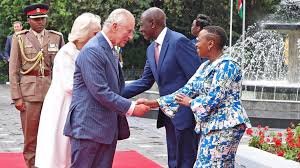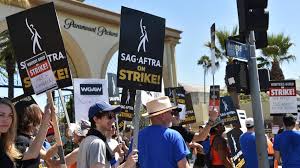Sacked Twitter staffers in Africa are threatening to sue the company for failing to pay out the redundancy money they say they were promised.
Most had only been in the job a matter of months when the social media platform, now known as X, told them they were fired last November.
“It’s difficult when it’s the world’s richest man owing you money and closure,” one of the sacked workers tells the BBC.
The BBC has approached X for comment several times but was rebuffed with, among other things, a smiling poo emoji.
A more recent attempt received this response: “Busy now, please check back later.”
The company has previously said that it had paid ex-employees in full.
Elon Musk, who took over the company last year, embarked on a massive global cull of employees, sacking more than 6,000 people. He had said he was losing more than $4m (£3.5m) a day.
The African contingent, who number fewer than 20, had only just moved into X’s new office in Accra, Ghana, following about eight months of working from home during the Covid-19 pandemic.
Sacked staffers told the BBC their treatment by X had harmed their mental health and their family finances.
They said they were initially told that, although their contracts were being terminated, they would be paid to work for one more month. But they were immediately locked out of their emails and no further salary payments were made.
Since then, the staff said they have been involved in a frustrating year-long struggle with X for compensation.
“Every time we get close, they go silent for weeks on end with no explanation. It has been one year since they were all laid off, defeating the entire purpose of a redundancy package, which is meant to cushion employees against the adverse effects of being laid off,” said Carla Olympio from Agency Seven Seven, the company providing legal representation to the staff.
In September, both parties agreed that all discussions and a settlement would need to be concluded by 5 October at the latest. But, said Agency Seven Seven, this was the latest of many deadlines X has ignored.
In July, the BBC reported that the Africa ex-employees alleged that X had “ghosted” them in the middle of the negotiations, leaving them without severance pay and other work benefits, such as health insurance, stocks and shares options and unpaid leave allowances.
Some of them had been employed from neighbouring countries like Nigeria. Their contract termination meant they were left stranded in Ghana after having moved their families.
At the time, the BBC contacted X for a response, and that was when we received the smiling poo emoji in reply.
Mr Musk had earlier tweeted that email requests made to their press office would automatically be replied to with this emoji.
In a rare interview this April, he told the BBC that the social media giant now has 1,500 employees, down from just under 8,000 who were employed at the time of his acquisition.
When the news of Mr Musk’s radical staff cull became public, he tweeted that laid-off employees were given three months’ severance pay.
But the staff sacked from the Africa office say they did not receive this.
According to Agency Seven Seven, X only began negotiations with the sacked Africa staff after the BBC covered the story. But these negotiations have gone nowhere.
“We are now concluding arrangements with international colleague lawyers to pursue the matter in other jurisdictions, where Twitter, now X, might perhaps be compelled to do the right thing,” said Ms Olympio.
“With currency fluctuations, the entire payment due to them now would be less than a drop in the ocean and yet 12 months later, no payment. It is inexcusable,” she added. “It is a shame that the company, since its takeover by Mr Musk… should apparently be so reluctant to do right by this very small Africa team.”
This lawsuit against X brought by the Africa team is the latest in a number of cases against the company by other ex-employees, some of whom say they are yet to be compensated following Mr Musk’s $44bn (£39.3bn) takeover last year.
Earlier this year, X was hit by a lawsuit, filed by ex-employees in a California court, for allegedly refusing to pay at least $500m in promised severance packages.
Globally, the arbitration cases against the organisation stood at more than 2,200 as of August this year, according to a CNBC report.
A former Africa staff member told the BBC they were tired of having their hopes dashed.
Another said they were in shock but remained determined to get everything that was due to them.
BBC.





















































